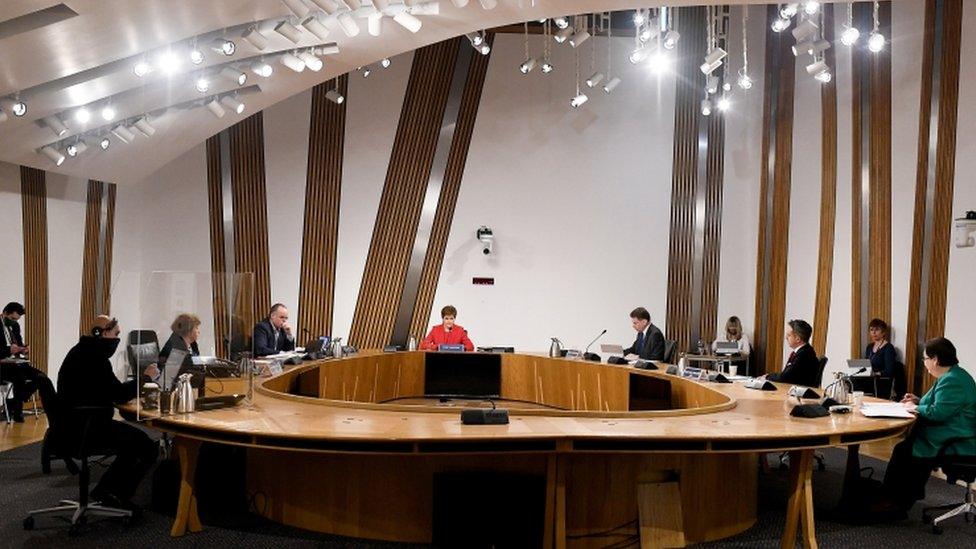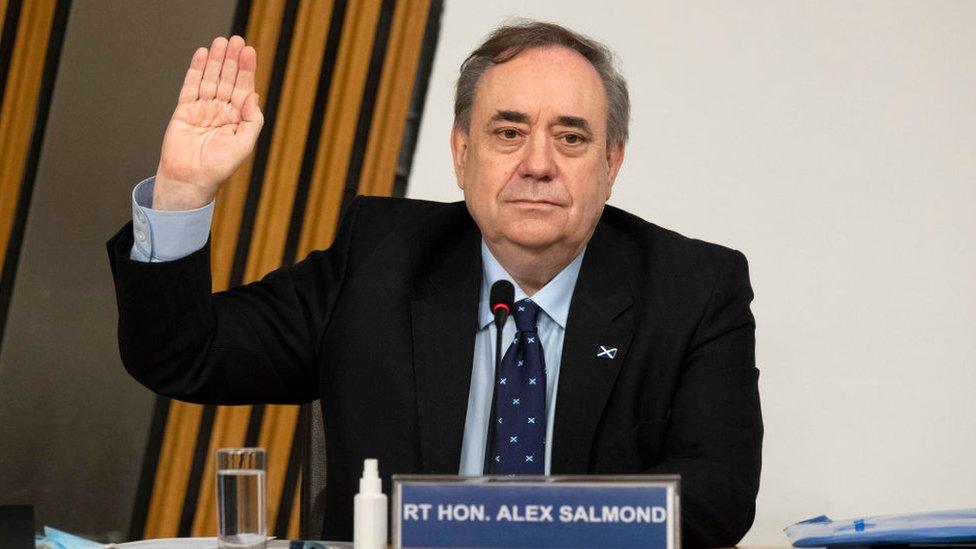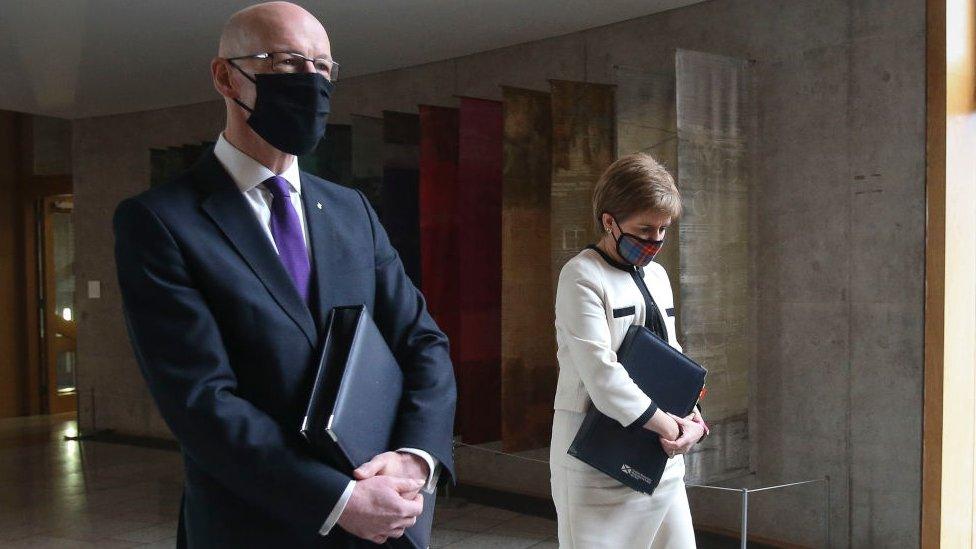Alex Salmond complainers claim government 'dropped' them
- Published

The women gave evidence in private to the inquiry, which heard from Nicola Sturgeon earlier this month
The two female civil servants who made harassment complaints against Alex Salmond have accused the Scottish government of not giving them enough support.
The pair claimed to have been "dropped" after the government lost the judicial review case brought by Mr Salmond.
They said they believed the saga made it less likely that other women would raise concerns in the future.
The women were quoted in the report into the handling of the complaints.
First Minister Nicola Sturgeon has apologised to the women on several occasions after admitting that they had been let down by the government.
Ms Sturgeon said earlier this month that the complainers were "the most important people in all of this" but they had been "let down by the mistakes the government made".
The government was forced to pay Mr Salmond's legal fees of more than £500,000 after the judicial review found that its investigation had been unlawful.
Mr Salmond was later cleared of 13 charges of sexual assault against nine women after a separate High Court trial in March of last year.
The former first minister has previously admitted that he was "no saint", but said the claims made about his alleged conduct were "deliberate fabrications for a political purpose" or "exaggerations".
He has also claimed that senior members of the government and SNP had plotted against him - which they deny.
The Holyrood inquiry into the affair concluded that the Scottish government's actions had been "seriously flawed".

Mr Salmond claimed in his evidence to the committee that there had been a political plot against him
But Ms Sturgeon has been cleared of breaching the ministerial code by a separate inquiry headed by Irish lawyer James Hamilton, who had been examining her role.
The two women - identified only as Ms A and Ms B - gave evidence in private to the inquiry committee last week, but their testimony was only made public when its final report was published on Tuesday.
The report said the pair had described a workplace culture in which inappropriate behaviour was not challenged, with one telling MSPs: "Making complaints was simply not the done thing."
The committee was also told the the complaints procedure at the time had been viewed as being "laughable" by the women, who said they only felt emboldened to come forward in the wake of the #MeToo movement.
But they said they had been "taken aback by the lack of contact and support from the Scottish government after the conclusion of its process".
'Faceless and voiceless'
They told the committee: "We were given regular updates over the period of the judicial review, but after that we were basically just dropped.
"We went through the entirety of the police investigation and the criminal trial with next to no contact from the Scottish government, let alone any kind of support.
"There might be good reasons for that but I certainly expected something, given that the government initiated the police referral and given the duty of care for us as staff members or former staff members, which the government had placed a lot of emphasis on during the process.
"I was quite taken aback because it felt as though we were just left to swim."
The women also described their anonymity as a "double-edged sword, because it means we are faceless and voiceless".
They criticised the politicisation of the saga, which they said had led people to "ascribe motives to us that fit a particular theory that they have".
And they said the "directed abuse and misrepresentation" on social media had been "completely crushing".

The first minister and her deputy John Swinney have both apologised for the government letting down the two women
One of the women said: "I want a bit of a moratorium on party politics when it comes to dealing with matters of this sort.
"It has highlighted the inadequacies of the complaints process, but it has also shown the kind of circus that can bubble up around it.
"One of the most distressing aspects has been to see media commentary on how this has set back the #MeToo movement, which is obviously the complete opposite of what any of us hoped to achieve by starting to put those things on the table."
The women also said they had been "alarmed" to discover how many people within the government knew about their complaints and their identities.
But they said they had not been directed by anyone to make statements to the police.
'Hindered rather than helped'
The women also told the committee that the handling of the complaints by the government had been "quite damaging" to the prospect of other people coming forward in the future.
They said: "I would hope that you can bring forward complaints against even the most powerful people and they will be taken seriously, and that, through that precedent, a culture can be built that makes people feel that things are possible.
"Unfortunately, I suspect that that has been hindered rather than helped by the way that things developed."
Deputy First Minister John Swinney said the government had acknowledged that its mistakes had a "real and damaging impact" on the women who raised the complaints.
He added: "We have apologised for this and we do so unreservedly again today.
"I remain absolutely determined that the Scottish government should ensure this does not happen again and that together we create a culture where these behaviours do not arise."